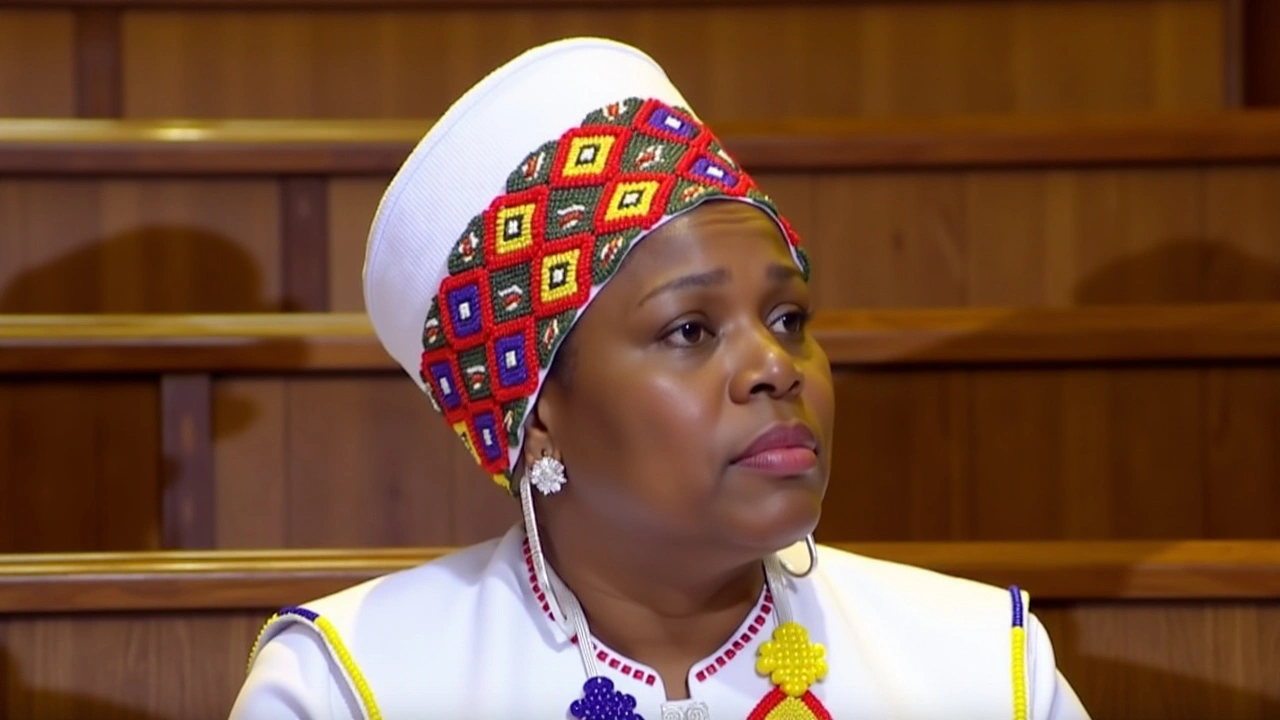The Background Behind Nosiviwe Mapisa-Nqakula's Corruption Charges
The recent postponement of the corruption case involving former Defence Minister and National Assembly Speaker, Nosiviwe Mapisa-Nqakula, has put a spotlight on the issue of political integrity in South Africa. The ongoing legal proceedings, initially scheduled in mid-October 2024, have now been deferred to December. This particular case is gaining significant attention, not merely because of Mapisa-Nqakula’s previous high-ranking roles, but due to the broader implications it holds for governance and public trust within the country.
Mapisa-Nqakula's time as Defence Minister, a position she held from 2012 to 2021, drew scrutiny following allegations of tender graft. These allegations suggest that government contracts were improperly awarded, involving large sums of money meant for national defense and security upgrades. Such charges of fraud and corruption are severe, particularly against high-ranking government officials. As the legal proceedings progress, many South Africans are eager to see how these allegations are addressed in court and what consequences may stem from them should Mapisa-Nqakula be found guilty.
The Significance of the Postponement
The decision to postpone the case to December provides both the defense and the prosecution more time to prepare their arguments and evidence. For Mapisa-Nqakula, it offers an opportunity to bolster her defense strategy and ensure all documentation and testimonies supporting her innocence are meticulously assembled. For the prosecution, this time is crucial in refining their case to present a comprehensive argument that establishes a clear connection between Mapisa-Nqakula and the alleged wrongdoing.
Rescheduling court appearances is not uncommon in complex legal cases, especially those tied to high-profile figures where the stakes are elevated. Such postponements are often necessary to prevent any miscarriages of justice and ensure that the trial proceeds with all due diligence. However, this delay also prolongs a period of uncertainty both for Mapisa-Nqakula and the public, who remain invested in the outcome of this significant trial.
The Broader Implications for South Africa
This case is part of a larger narrative concerning allegations of corruption within the South African government. As the country grapples with economic challenges and a need for transparent governance, cases like Mapisa-Nqakula’s come under rigorous public scrutiny. Citizens and policymakers alike are questioning how pervasive such practices might be and what systemic changes are required to restore faith in public institutions.
The outcome of this case could set precedents for future corruption cases in the nation, impacting how similar allegations are handled legally and politically. A conviction could lead to more stringent oversight of government contracts and the processes by which they are awarded. On the other hand, an acquittal could raise questions about the effectiveness and fairness of the judicial process in handling corruption issues. Either scenario underscores the necessity for legal frameworks that adequately address and deter political corruption.
Public Reactions and Expectations
The South African public’s reception of this case is diverse, with many expressing frustration and disappointment over the allegations of corruption against a former government official. For citizens struggling with socioeconomic issues, the thought that public funds may have been misused is particularly galling. As such, there are increasing calls for accountability and justice, not only in Mapisa-Nqakula’s case but across all sectors of government accused of similar transgressions.
Simultaneously, there are individuals and groups rallying in support of Mapisa-Nqakula, arguing that the true facts of the case are yet to be revealed. They stress the importance of a fair trial and caution against prejudging her guilt based merely on accusations. This dichotomy in public opinion reflects the complexities involved in political and legal battles where reputations, livelihoods, and public confidence are at stake.
Looking Ahead
As the new court date in December approaches, the Mapisa-Nqakula case remains a significant marker of South Africa’s ongoing struggle with corruption within its leadership. The case is a reminder of the immense responsibility resting on governmental shoulders to maintain integrity, transparency, and accountability. The proceedings promise to capture not only the attention of South Africans but international observers as well, as the nation strives to strengthen its governance practices and safeguard its democratic institutions.
The coming months will be pivotal, with each legal maneuver potentially influencing both public perception and policy discussions. Watching closely will be stakeholders from various sectors, including legal experts, political analysts, and, perhaps most importantly, the South African populace, whose trust in their leaders hinges on the resolution of such cases of purported misconduct.






